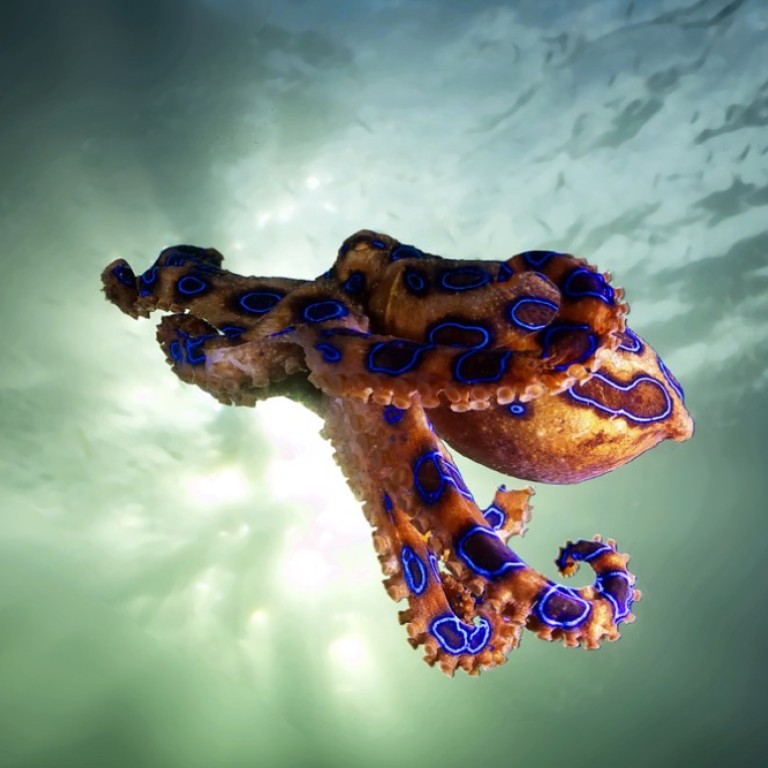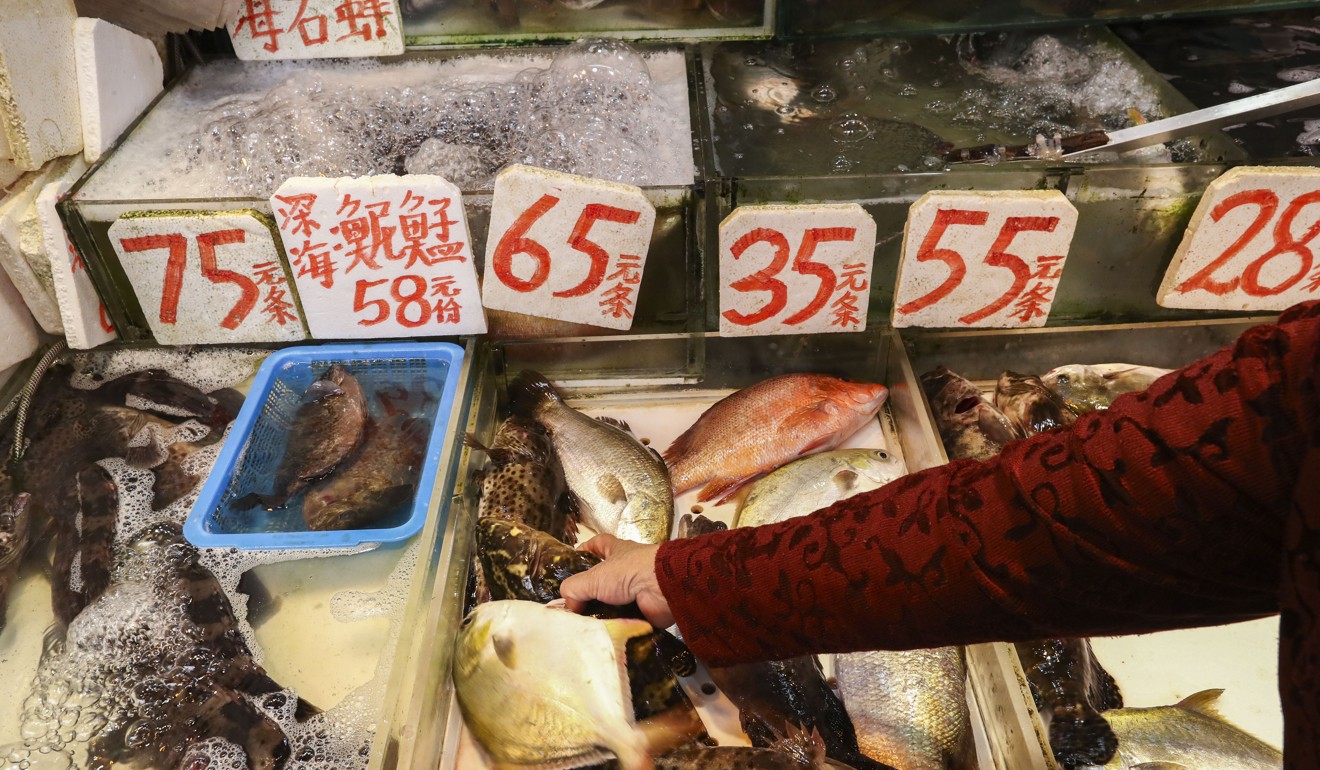
Octopus bite among 3,960 cases of poisoning in Hong Kong, as city records nine fewer deaths than previous year
- Most of the 30 fatalities involved people inhaling carbon monoxide
A woman bitten by an octopus, a child who ate rat poison, and an elderly man who drank drain cleaner were just three of the 3,960 cases of poisoning in Hong Kong last year, according to authorities.
The number of cases were four more than in 2017, but resulted in nine fewer deaths, with 30 in 2018, and 39 the year before. In 2016 there were 4,074 cases, with 36 fatalities, said the Hong Kong Poison Information Centre.
In most of the cases involving death, the people concerned had inhaled carbon monoxide.
Presenting the 2018 figures, Dr Tse Man-li, the centre’s head, said people should not assume that octopus were harmless, although the case was only the second one in six years.

“The blue-ringed octopus has a venomous reputation,” Tse said. “But, actually, all octopus are venomous. The creature would use their beaks to drill into the shelled prey, like crabs, and produce toxin by their saliva glands to numb the prey.
“So, we have to be careful and avoid the octopus beak.”
In the most recent case, a seafood seller, aged 47, got bitten on her right hand while trying to move an octopus she kept in a fish tank of her stall, according to Tse.
The bite wound was tiny, but it started to swell quickly and the woman later suffered lip numbness and swelling around her right eye.
While it was a mild case, and the woman was fine after treatment, Tse reminded the public to handle octopus carefully, although he was quick to point out that there was little danger to the general public as octopus are not normally found in the seas around Hong Kong.
Hong Kong’s rat problem could be worse than first thought
The centre’s associate consultant Dr Chan Chi-keung also warned of the dangers of misusing household products. In 2018, there were three mild poisoning cases involving the accidental eating of rat poison, because it had become mixed with human foods.
“There was one case in which a two-year-old boy got poisoned after eating instant noodles that was mixed with rodenticide,” Chan said. “Domestic rodenticide available in Hong Kong are ready to use products. There is no need to mix them with human food.”
There was also a case in which an 83-year-old man had to stay in hospital for a month after mistaking powdered drain cleaner for sugar, and drinking the solution.
The centre also reported five cases of snake bites, in which the victims were attacked while travelling in mainland China, or Southeast Asia.
13 struck by food poisoning in Hong Kong after eating at hotel’s dinner buffet
Meanwhile, a study published in the Hong Kong Medical Journal on Wednesday said the city had recorded 62 plant poisoning cases, involving 26 plant species, from 2003 to 2017.
While 57 patients had mild and moderate toxicity, the remaining five had severe toxicity and required treatment in intensive care.
While similar plant poisoning cases reported in western countries were predominantly accidental exposure in children, most patients in the Hong Kong study were poisoned after intentional use of wild plants.
In most cases, those poisonous plants were wrongly identified as medicinal herbs or food.
Researchers of the study said doctors should be aware of local poisonous plants and their toxicities, and the public should be educated about the potential hazards of eating wild plants.
Additional reporting by Elizabeth Cheung

